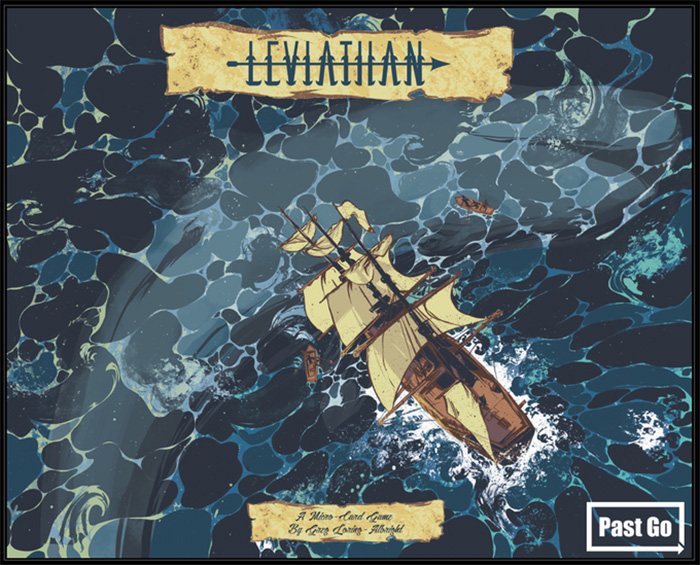Q&A with an Analog Game Designer and Scholar
By Kylie Gray
February 03, 2020
We’re in the middle of a “gaming renaissance,” says Drexel student Greg Loring-Albright. So, what does that mean for you, exactly? Anyone can become a game creator. Loring-Albright shares his perspectives as a PhD candidate in communication, culture and media (CCM) who focuses in academic game studies and has also created his own games.
 Greg Loring-Albright
Greg Loring-Albright
How did you become interested in gaming?
My family growing up was very into games: Monopoly, Hearts, and Pinochle with my grandparents. It wasn’t until I was an adult that I started thinking about gaming as an industry. Sure, some games spring up from the ground, in a sense — no one said, “I’m going to invent chess” — but now there is a contemporary gaming scene where the creator’s name goes on the box. Realizing that real people make games, and I could be one of them — it was a paradigm shift for me.
How did that realization lead you to become a game designer and academic?
I was living in Chicago at the time, and a friend connected me to another friend who was into making games. He invited me to help him make a puzzle hunt in the pedway, a series of sidewalks under the city that feels sort of secretive and magical. We were looking for textual elements to recontextualize. Many real-world games use text that exists in the world and is hard to obscure, so the game can run independently.
In my PhD work, I study these and other types of analog games, meaning any type of game without a computer. This framing for my work is a little too broad, because it also encompasses sports studies, but it captures the real-world games, board games and role-playing games that I’m interested in.
My friend and I ended up working on a couple of other games together. Eventually I moved back to Philly, where I started licensing games and inventing some of my own, and also applied to Drexel. I created a game company that is now mostly dormant as I focus on school.
What kinds of games have you created?
I published a game called Leviathan, which is a two-player micro-card game about “Moby Dick.” I also created some site-specific games here in Philly — one was a spy game in Rittenhouse. For the past two years, I have created promotional scavenger hunts for the PAX Unplugged gaming conference.
 Artwork by Andrew Thompson from the game Leviathan by Greg Loring-Albright
Artwork by Andrew Thompson from the game Leviathan by Greg Loring-Albright
Do you ever feel a conflict between being a creator and an academic of games?
Not really. It’s nice to have a lot of different angles from which to approach something that I like. I think of creating games as an art practice, where I am focused on making the game better. Then I have the practice of reading, writing and producing in analytical mode. And then there is playing games for fun. I can’t not think about what I read for class when I’m playing games, but I do try to keep them separate.
Tell us more about the academic side of gaming and your program in particular.
The CCM program at Drexel is very intentionally interdisciplinary. We’ve had recent graduates studying punk rock and skateboarding culture; a PhD candidate studying tiki bars; colleagues studying gender in advertisement and alt right trolls — a gamut of interesting topics that sit at the intersection of the three disciplines. I’m very happy to be studying here because of this sort of interdisciplinary cross pollination. Working with non-games people, I have to be able to succinctly explain trends in scholarship or models of research. It’s a good practice that keeps me from falling too far down the rabbit hole of a single discipline’s approach.
Speaking of explaining scholarship, could you give us the 30-second version of your research?
Sure, I’m interested in studying the tabletop gameplay situation as a mediated microecosystem. What that means is, when we all sit down to play a game together, we’re sending messages to each other — about the game, but also not about the game and via the game. We are sending verbal, nonverbal and procedural messages in a variety of ways. I’m interested in studying the way all those forms of communication interact and create a situation that is different from digital gaming.
In analog gaming, there is still that almost computer-like system of the game’s rules — although we might mediate differently than a computer. That’s one of the big-picture questions that I’m working on investigating empirically: Are the analog and the digital substantially different, and if so, how?
Do you ever find yourself having to defend your discipline?
I don’t find myself having to engage in that discourse that much. We are sort of in the middle of a gaming renaissance — both in the casual gaming sense of everyone playing cell phone games, and also in analog gaming, the proliferation of game cafés and stores. This resurgence is probably why I am part of this subculture, and why I think it is important to study it — and other people agree. Broader cultural forces are saying that this is important, so I don’t have to.
What is intriguing to you about creating games?
A big part of my interest in real-world games is that I feel physical place is important. There are so many places that we see without really seeing. By using a game’s system of rules, you can cue someone to pay attention to space differently; that opens up their world to paying attention to it in all kinds of different ways.
I like the idea of flipping the script on overlooked or forgotten places. Suddenly, the important part of the city isn’t the Comcast tower — it’s the weird corner of an alley where I can find this plaque with a clue for a scavenger hunt. Suddenly, that place is granted incredible significance.
Greg’s Game Recommendations
“My current favorite games are about love and dating, which is not a very explored space. I like games that ask, ‘What if you used one of the traditional motifs — war, trains, economics — to make a game about love?’”
Star Crossed
“It’s a two-player game using a Jenga tower. It has very few rules and is more about the storytelling.”
Fog of Love
“It’s in the traditional board game space, where you and a fellow player try to make a relationship work over time. It’s very good and often very tragic. You have to be in the right mood and remember that you are not the characters!”
What does it take to be a game designer?
Curiosity and expressiveness. A lot of people who make games are interested in systems for system’s sake. Solving a puzzle and feeling accomplished is one way to play games, but I want games to be an expressive form, a place where I can have a window into the human experience. I like thinking about how a game can express a thought or a place, and building games from that feeling outward.
Anything you would want others to know about the gaming community?
As I mentioned previously, we’re in this casual game revolution. Since everyone is a player of games, the next step is that everyone can be a maker of games, or at least an alterer of games. Even switching up the rules on a simple game like tag: once you’ve done that, you’ve crossed the line to being a game designer. It’s both easier and harder to become a game designer than you might expect, and everyone should try it sometime.
Interested in learning more about Greg’s research (or even volunteering your game group for his study)? Reach out to him at gsa33@drexel.edu to find out how you can be part of his dissertation research.